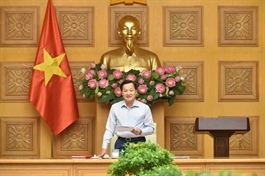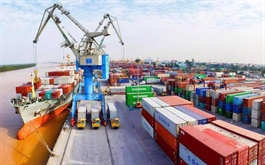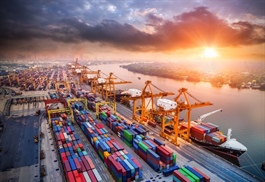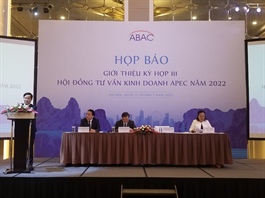People, enterprises applaud drop in petrol prices
People, enterprises applaud drop in petrol prices
The recent drastic slash in fuel prices has been welcomed by both people and enterprises reeling from months of consecutive price hikes.

This move is expected to help economic recovery, keep inflation under control and rein in the rising cost of living.
Vu Tien Loc, a member of the National Assembly’s Economic Committee, said the drop of VND3,000 per litre in petrol prices, the biggest ever, follows a reduction in the environmental protection tax on petrol and oil. This follows the National Assembly Standing Committee’s Resolution No20/2022/UBTVQH15, which showed the Government’s efforts to support production and business in post-pandemic recovery amid climbing commodities prices.
Nguyen Thu Huong, living in Hoan Kiem District, Ha Noi said as petrol prices kept rising from the beginning of this year, her family’s living costs increased significantly.
When prices reached VND26,000 per litre, her family spent around VND13 million per month. However, with prices at VND30,000 over the past two months, this living cost rose to more than VND15.5 million.
Huong said that falling fuel prices would make life easier, and hoped that consumption and living expenses would soon drop as well.
Le Duy Hiep, President of the Viet Nam Logistics Association, said that the move to cut fuel prices showed the Government’s effort to share difficulties with enterprises. In just over a month, petrol prices increased 15 per cent, which was “too much for businesses to bear”, especially transportation enterprises.
Nguyen Minh Chau, director of Ha Noi CNC Accurate Mechanical Company Limited in Me Linh District, Ha Noi, said that although his company did not operate in the transportation industry, rising petrol prices significantly pushed up production costs.
Enterprises were happy with the decrease in petrol prices but what is more important is keeping fuel prices stable, or maintained at low levels after this adjustment, he said.
According to the General Statistics Office, petrol and oil prices increased by 51.38 per cent in the first six months of this year, pushing up the consumer price index (CPI) by 1.87 percentage points. In the second quarter alone, petrol prices were 54.92 per cent higher than the same period last year, after seven consecutive hikes.
Economic expert Ngo Tri Long said that petrol prices were reduced to below VND30,000 trillion per litre, helping ease inflation pressure as well as the burden on fuel-consumed industries such as aviation, logistics and offshore fishing.
Can Van Luc, a member of the National Financial and Monetary Policy Advisory Council, said that if the reduction in environmental protection was maintained till the end of this year, the country’s gross domestic product (GDP) could increase by 0.57 percentage points and CPI decrease by 0.41 percentage points, although budget revenue could drop by an estimated VND7.8 trillion.
However, Luc said easing fuel price pressure would help the economy to achieve the growth target of this year, even reaching seven per cent with CPI controlled at around four per cent.
Former director of the General Statistics Office Nguyen Bich Lam said that as petrol was a strategic commodity, an input cost of most production and business activities, any adjustments in prices would directly affect production costs and profits of enterprises.
Low fuel costs would help enterprises have room to expand production, create jobs and raise the income of workers, as well as reduce inflation and promote economic development, he said.
Lam pointed out that when petrol prices increase, the prices of essential goods and transportation fees followed. However, when petrol prices were reduced, prices of these items were not often adjusted correspondingly.
According to Lam, petrol and oil prices after the cuts on Monday remained at a higher level than at the end of 2021; petrol by about VND6,000 and oil by about VND9,000.
It is necessary to develop a plan to further reduce taxes on petrol and oil to control inflation within the target, remove difficulties for production and business and accelerate post-pandemic economic growth, he said.
He pointed out that there was room for further reductions, including the import tax, excise tax and value-added tax on gasoline.
Although tax reductions will affect the budget revenue, in the medium and long term, they will promote production and business, which could bring revenue to the budget.






















